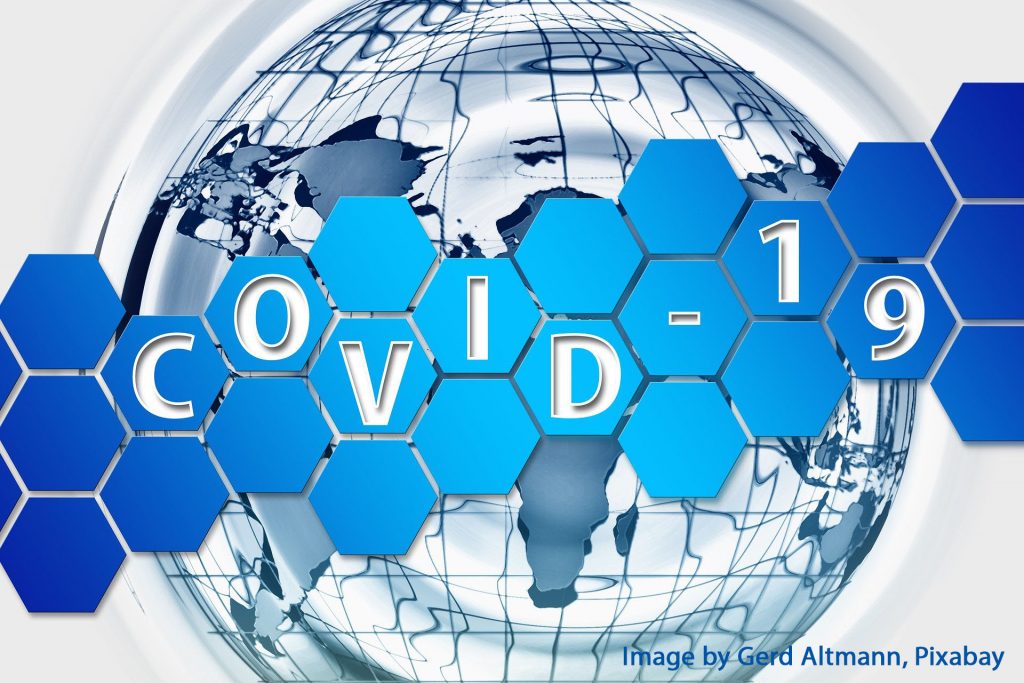The corona virus pandemic has highlighted how important the United Nations and a human security framework (versus a military security framework) are for humanity in this globalized world.
Globalisation – especially international travel – has been a key factor in the spread of the virus. On the other hand, key elements of globalisation and especially the United Nations are vital elements in addressing the pandemic.
As coronavirus has spread around the globe wrecking havoc on public health, social life and economies everywhere, the UN and its key agencies including the World Health Organisation (WHO) are providing an invaluable source of information, public health guidance and global cooperation required to contain and eventually overcome this pandemic.
In a time of widespread fake news, biased reports and conspiracy theories, WHO has been providing credible information about the virus and expert public health guidance, enabling governments to implement effective policies to contain the virus and mitigate its health and economic impact. WHO has also been providing this information to the general public, assisting individuals to take informed personal measures to protect themselves.
WHO has been able to reach the general public by using multiple communication platforms including cell phone networks, social media and mainstream media, something which would not have been possible before the globalisation of communication systems.
WHO, through its strong connections with health ministries around the world, has helped governments to develop a coordinated approach to the pandemic where possible. However, the barriers to this – and the delays in implementing WHO guidelines in some countries – demonstrate the limits of an advisory body like WHO which cannot force governments to adopt their recommendations.
Political leadership from the UN Secretary-General
The UN Secretary-General has played a key role in building understanding of the situation, political support for implementation of WHO recommendations and consideration of the political and economic measures that are required in the wake of the pandemic. See, for example, UN Secretary-General: COVID-19 Pandemic Calls for Coordinated Action, Solidarity, and Hope.
In addition, the UNSG has highlighted the need to halt armed conflict and roll-back economic sanctions in order to better combat the pandemic, and he has mobilized UN personnel and resources to assist in this. See UN Secretary-General urges global ceasefire to enable management of coronavirus pandemic.
Indeed, the UNSG is taking a hands-on and pragmatic approach to advance public health and human security in contrast to the priority often given by national governments to military (in)security.
Human security versus military (in)security
In National security is too crude to protect us from pandemics: It’s time to shift to human security, an article published in Newsweek on March17, Jonathan Granoff (Global Security Institute and UNFOLD ZERO) writes that the corona virus pandemic is a threat to human security for which governments should have been prepared. But instead they have been focusing more on military (in)security, spending trillions of dollars on weapons to defend against military attacks rather than investing in human security issues like health, climate change and poverty.
‘The concept of “security” must be redefined, or at least expanded. For a long time, it has been defined singularly in nationalistic terms, measured by military strength. Many trillions of dollars continue to be spent on weapons to defend nations against threats they pose to each other. Vast institutions have been created around these weapons, and outstanding intellects are dedicating their brilliance to strengthening these institutions and designing strategies for using these weapons—all in the name of national security. But as this pandemic spirals around the world, and as militaries lie helpless before it, it’s appropriate to ask whether we would be better off if more resources and attention were pooled and devoted to addressing threats to human security.’
Jonathan Granoff, Newsweek, March 17, 2020
A similar argument is made in a blog I wrote for the Move the Nuclear Weapons Money campaign entitled To address the corona virus: Shift resources from nukes and the military to public health and the economy..
Indeed, the annual budget for the United Nations – a vital institution in advancing human security – is 5% of the global nuclear weapons budget and less than 0.5% of the global military budget. These economic priorities must be shifted. Civil society campaigns like Move the Nuclear Weapons Money, Divest from the War Machine and the Global Campaign on Military Spending highlight a range of effective actions that civil society can take to cut military budgets and investments and redirect these to peace, climate protection and sustainable development.

